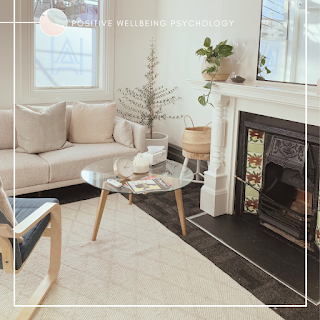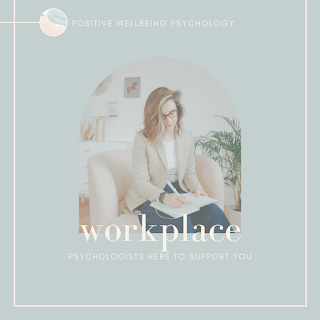What Factors to Consider When Looking the Best Melbourne Psychologist for Your Individual Needs?
WHAT IS THE MOST IMPORTANT FACTOR TO CONSIDER WHEN LOOKING FOR A PSYCHOLOGIST?
Research has found that finding the best Melbourne psychologist or best online psychologist largely comes down to the therapeutic relationship. This refers to the therapeutic alliance – the relationship between the therapist and the client. Yes, this means that research has found that selecting a prospective psychologist often comes down to your emotional impression more so than their practised therapeutic treatment approach.
A good place to start is to read the bio of the psychologist before your initial consultation (click here to meet our team). In your initial consultation you may also found it useful to consider the following:
Does your psychologist provide a safe and non-judgemental environment that encourages forthright communication and trust?
Do you feel comfort and trust when with your psychologist?
Do you find your psychologist encompasses warmth and compassion yet has established strong rapport to challenge you when necessary?
WHAT FACTORS INFLUENCE POSITIVE CHANGE IN THERAPY?
A strong psychotherapeutic relationship is consistently shown within research to substantially contribute to positive therapeutic outcomes, irrespective of the treatment type used. Research also indicates that the strength of the working alliance formed between a client and their therapist is a stronger predictor of treatment outcomes than actual treatment type. These findings suggest that the interpersonal relationships formed during therapy are often more potent than the actual psychotherapeutic treatment.
We share research findings to support you in finding the best Melbourne psychologist for you needs. Research suggests four common factors to bring about change in therapy:
First, each client brings their own unique theory of change to therapy, so much so that roughly 40% of the therapeutic benefit is attributed to unique client factors. These factors may encompass qualities such as the client’s willingness to change, the client’s theory of change given the context of their challenges, the client’s belief that change can occur and that the chosen therapy can affect this change.
Second, the relationship between therapist and client accounts for around 30% of therapeutic outcome. Therapeutic alliance encompasses both the bond between a client and their therapist and having a mutual understanding regarding the structure and goals of therapy. Research suggests that: therapists who are able to form better alliances report better client outcomes; therapists’ personal characteristics and in-session activities positively influence therapeutic alliance; and therapists’ hypotheses-generating skills are an important factor in clients’ therapy experiences.
Third, 15% of the therapeutic outcome is contributed to clients’ expectations, as well as their hopes and beliefs that change will occur as a consequence of treatment.
Fourth, the remaining 15% of what works in therapy is presumed to be related to the actual treatment type.
Consequently, with 85% of psychotherapeutic outcome purportedly reliant on factors other than specific treatment type, and minimal evidence supporting treatment superiority for any one psychotherapy over another, it is so important to find a psychologist that encourages trust and comfort (read full article here).
WHAT IS A CLIENT-CENTERED APPROACH?
Integrative and client-centered approaches to therapy individualises psychotherapeutic treatment by integrating diverse theories and techniques in response to each client’s unique world view, experiences, and theory of change. This approach helps strengthen the therapeutic alliance and the likelihood of positive change for the client. This is guided by continuous assessment protocols which recognise the evolving nature of psychotherapy; the therapist works with their client dynamically, weaving an ever-evolving therapeutic space in response to their client’s immediate needs.
THERAPY GOALS IMPORTANT?
We find that the therapeutic process works best when you set goals, work towards achieving them and with your psychologist, monitor your progress. Often clients describe feeling heard and comforted knowing the client and therapist are on the same page. Should one of the goals be unattainable or unrealistic then you explore this with your psychologist. Your psychologists will likely make recommendations based on your presenting difficulties and personal strengths.
WHAT SUBJECTS TO PSYCHOLOGISTS STUDY?
“A few subjects that were studied in my undergraduate and postgraduate university studies include clinical psychology, developmental psychology, social psychology, psychological assessment and intervention, clinical neuroscience, communication skills, psychology of health and illness, health promotion and behaviour change, living with long term illness, professional skills in health psychology, among others.” ~ Emily Burton ~ Principal Psychologist and Founder of Positive Wellbeing Psychology.
- A psychologist has studied:
- the mind and behaviours,
- how the mind works,
- how people think, react, and behave,
- how situations effect people, and
- the relationship between thoughts, feelings, and behaviour.
A psychologist practicing within Australia is required to be registered with the Australian Health Practitioner Agency (AHPRA), and to have undergone a minimum of six years of approved psychological study. We are warm and professional Melbourne psychologists registered with the Australian Health Practitioner Regulation Agency (AHPRA). As psychologists in clinical practice, we adhere to the professional codes of the Australian Psychological Society and Psychologists Registration Board of Victoria. We are trained in helping individuals achieve life satisfaction, personal meaning, inner-peace, and positive wellbeing. Our matching service helps you to find the best psychologists for your needs, by also recommending other practices based on your needs.
If you are unhappy, stressed, confused, or finding it difficult to cope, then seeing a psychologist can help you. Knowing what psychologists do and how to get the right psychologist for you is a good initial step on the road to improvement. We hope our blog supports you to find the best Melbourne or local psychologist to meet your needs.
HOW CAN POSITIVE WELLBEING PSYCHOLOGY HELP?
Why not reach out to us at Positive Wellbeing Psychology, discuss your needs and we can match you with one of our Melbourne psychologists. Research suggests that people who receive psychotherapy from a psychologist are better off than 80% of those who have not received therapy. At Positive Wellbeing Psychology, we are experienced in providing evidence-based treatment online via video or phone. Our matching services is designed to help you find the best Melbourne psychologist for you, by also recommending other practices based on your needs.
Our practice collaborates with a number of Melbourne general practitioners, psychologists, dieticians, nutritionists, psychiatrists, among others; who are outside our practice. We are able to make recommendations to better support your needs and/or to establish a holistic approach to positive change.
To enquire about an appointment with Positive Wellbeing Psychology, please complete our Online Contact Form for new clients (click here). We’ll be in touch shortly to answer any of your questions.
NEED MORE IMMEDIATE HELP?
If you need immediate help or your life is in danger, please call ‘triple zero’ (000). If you are thinking of harming yourself, it is important to reach out for immediate support. If someone you know is at immediate risk of harm, please also call ‘triple zero’ (000) as a matter of urgency. For more information on immediate supports, please click here.
REFERENCE
We recommend reading the full article ‘A Neuroscientific perspective on the therapeutic alliance and how talking change the brain: Supporting common factors model of psychotherapy’ (click here to read full article), which is sourced from The Psychotherapy and Counselling Journal of Australia by author and psychologist, PhD Nicole Hess.



Comments
Post a Comment